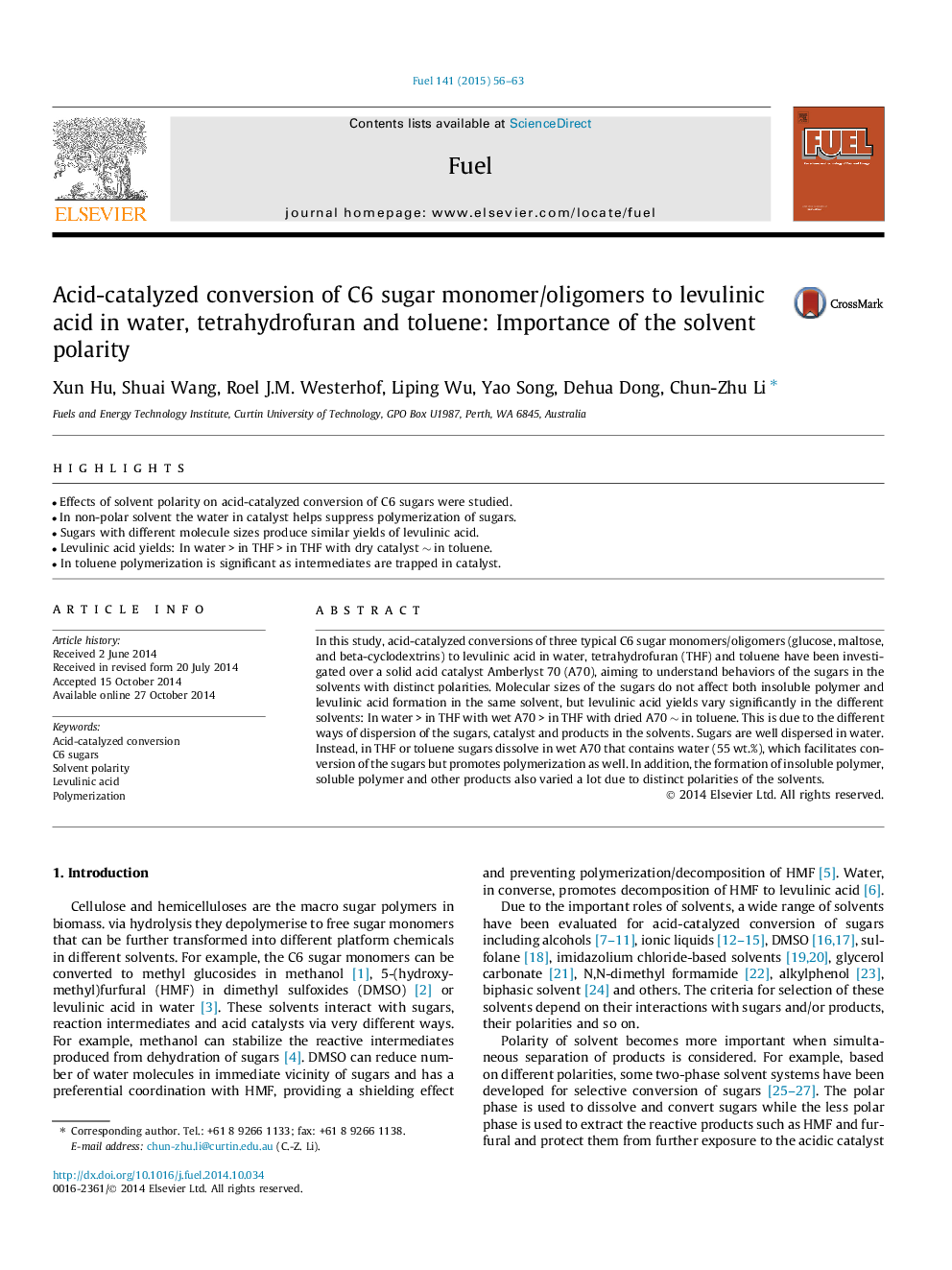| Article ID | Journal | Published Year | Pages | File Type |
|---|---|---|---|---|
| 205876 | Fuel | 2015 | 8 Pages |
•Effects of solvent polarity on acid-catalyzed conversion of C6 sugars were studied.•In non-polar solvent the water in catalyst helps suppress polymerization of sugars.•Sugars with different molecule sizes produce similar yields of levulinic acid.•Levulinic acid yields: In water > in THF > in THF with dry catalyst ∼ in toluene.•In toluene polymerization is significant as intermediates are trapped in catalyst.
In this study, acid-catalyzed conversions of three typical C6 sugar monomers/oligomers (glucose, maltose, and beta-cyclodextrins) to levulinic acid in water, tetrahydrofuran (THF) and toluene have been investigated over a solid acid catalyst Amberlyst 70 (A70), aiming to understand behaviors of the sugars in the solvents with distinct polarities. Molecular sizes of the sugars do not affect both insoluble polymer and levulinic acid formation in the same solvent, but levulinic acid yields vary significantly in the different solvents: In water > in THF with wet A70 > in THF with dried A70 ∼ in toluene. This is due to the different ways of dispersion of the sugars, catalyst and products in the solvents. Sugars are well dispersed in water. Instead, in THF or toluene sugars dissolve in wet A70 that contains water (55 wt.%), which facilitates conversion of the sugars but promotes polymerization as well. In addition, the formation of insoluble polymer, soluble polymer and other products also varied a lot due to distinct polarities of the solvents.
